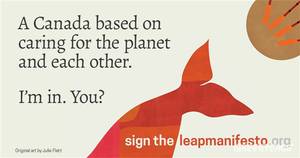Inauguration 2017 Special Coverage w/ Angela Davis, Naomi Klein, Ralph Nader & More
Menu

Special coverage in the Trump Era
From Public Citizen's Corporate Presidency site: "44 Trump administration officials have close ties to the Koch brothers and their network of political groups, particularly Vice President Mike Pence, White House Legislative Affairs Director Marc Short, EPA Administrator Scott Pruitt and White House budget director Mick Mulvaney."
Dark Money author Jane Mayer on The Dangers of President Pence, New Yorker, Oct. 23 issue on-line
Can Time Inc. Survive the Kochs? November 28, 2017 By Jane Mayer
..."This year, among the Kochs’ aims is to spend a projected four hundred million dollars in contributions from themselves and a small group of allied conservative donors they have assembled, to insure Republican victories in the 2018 midterm elections. Ordinarily, political reporters for Time magazine would chronicle this blatant attempt by the Kochs and their allies to buy political influence in the coming election cycle. Will they feel as free to do so now?"...
"Democracy in Chains: The Deep History of the Radical Right’s Stealth Plan for America" see: our site, and George Monbiot's essay on this key book by historian Nancy MacLean.
Full interview with The New Yorker’s Jane Mayer March 29, 2017, Democracy Now! about her article, "The Reclusive Hedge-Fund Tycoon Behind the Trump Presidency: How Robert Mercer Exploited America’s Populist Insurgency."
Democracy Now! Special Broadcast from the Women's March on Washington
The Economics of Happiness -- shorter version
Local Futures offers a free 19-minute abridged version of its award-winning documentary film The Economics of Happiness. It "brings us voices of hope of in a time of crisis." www.localfutures.org.
What's New?
May 23, 2016
"Why The Leap Manifesto Is Common Sense"
Greenpeace Blogpost by Joanna Kerr - April 13, 2016. Also reported by Popularresistance.org
"The response from politicians and commentators to the Leap Manifesto, a policy proposal to government from Canadian civil society, has been surprising.
Much of the proposals contained in the manifesto flow from an acceptance of things we know to be true: that climate change is real and threatens our society and economy, that some groups of Canadians are more disadvantaged than others, and that dirty energy affects Indigenous communities on the frontlines of industrial sites foremost, to name a few.
Far from being an elite and far-fetched radical proposal, the Leap Manifesto, with its roots in the country’s diverse civil society and the latest scientific research, reveals the zeitgeist of how Canadians want to live and do business with one another.
The Leap Manifesto was drafted by 60 representatives from Canada’s Indigenous rights, racial and socio-economic justice, environmental, faith-based and labour movements. Groups including Black Lives Matter, Idle No More, No One is Illegal Vancouver and the Ontario Coalition against Poverty were at the forefront. These are not elitist groups, but groups whose constituents face immense vulnerabilities and are fighting for what most middle-class Canadians take for granted. In fact, some honest and difficult conversations about power and privilege within our movements were had during the drafting."...
... "History shows that social activism has played a pivotal role in speeding up the pace of progress, from women’s and civil rights, to decolonization, to environmental justice.
At the most basic level, the Leap Manifesto is about catalyzing logical action to fix fairly obvious problems — the social cost and financial price tag of not acting on climate change and inequality will only get bigger the longer we do nothing."
Read the Leap Manifesto for yourself here."
Read full posting here


